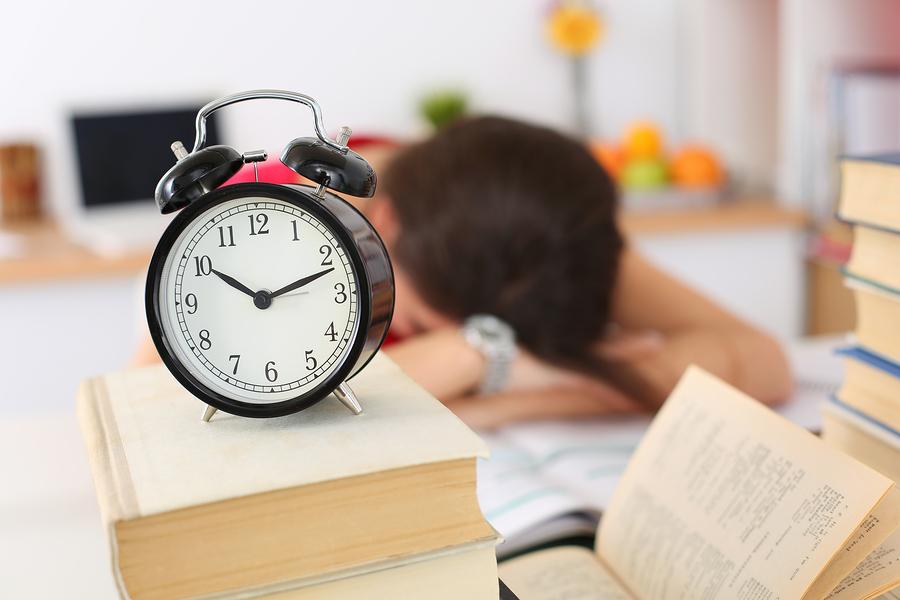High school students across America are not getting enough sleep. According to a recent report by the American Academy of Pediatrics, 87 percent of high schoolers get less than the widely recommended 8.5-to-9.5 hours per night, a deficit that grows every year until graduation.
The surface of the problem is that teen sleep patterns clash with school schedules. According to the National Sleep Foundation, teenagers’ biological clocks are set to keep them awake until 11 p.m. at earliest. Melatonin, a natural sleep hormone, is released later at night in teens than in children and adults.
Other activities encourage this night-owl biology—heavy homework loads, after school sports, and sleep-preventing blue light reflected from iphones and ipads.
And this inclination becomes habitual. When teens don’t get enough sleep, their circadian rhythms get out of whack, making the hours in which they are supposed to feel tired—between 3:00 a.m. and 7:00 a.m., and 2:00 p.m. and 5:00 p.m.—even more brutal. This leaves many feeling tired during the day but more awake at night.
Feeling tired aside, teens suffer from other consequences.
Lack of sleep impairs memory. A recent study at Uppsala University in Sweden tested how lack of sleep and stress combined to interrupt participants’ recall ability. Participants could recall newly learned information whether they slept four or eight hours, but when cognitive stress was added, those who slept only four hours lost some ability to recall what they had recently learned.
Michael J. Breus, a researcher at WebMD, adds that reduced sleep decreases attention, alertness and academic performance in students. Losing as little as 1.5 hours of sleep can reduce alertness during the day by 32 percent.
Lack of sleep also makes teens more vulnerable to long and short term health problems. Recent research by Harvard Medical School links lack of sleep with anxiety, depression, chronic disease, obesity, diabetes and life expectancy (of people without chronic conditions). Even more, the National Highway Traffic Safety Administration estimates that drowsy driving accounts for at least 100,000 automobile crashes, including 71,000 injuries and 1,550 fatalities.
It’s time to act.
One obvious solution would be to start school later. The Minneapolis Public School District decided to start school at 8:40 a.m. instead of 7:15 a.m. As a result, teachers and administrators report, students were more alert in class, attended school on time more frequently, and reported fewer cases of depression. Most schools will not be able to start school an hour and 25 minutes later, but seeing the consequences of the status quo, some change is better than none at all.





















































